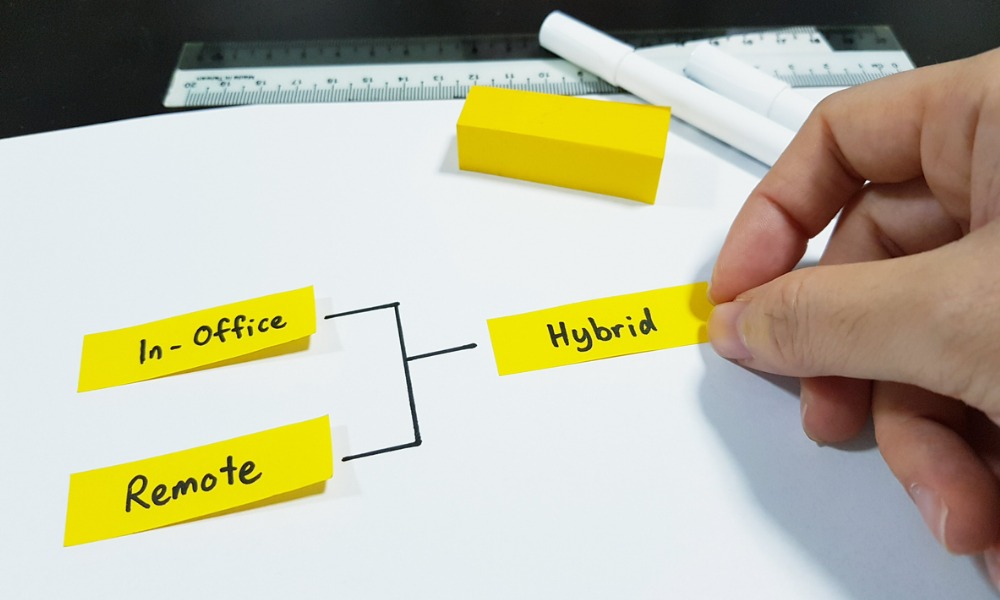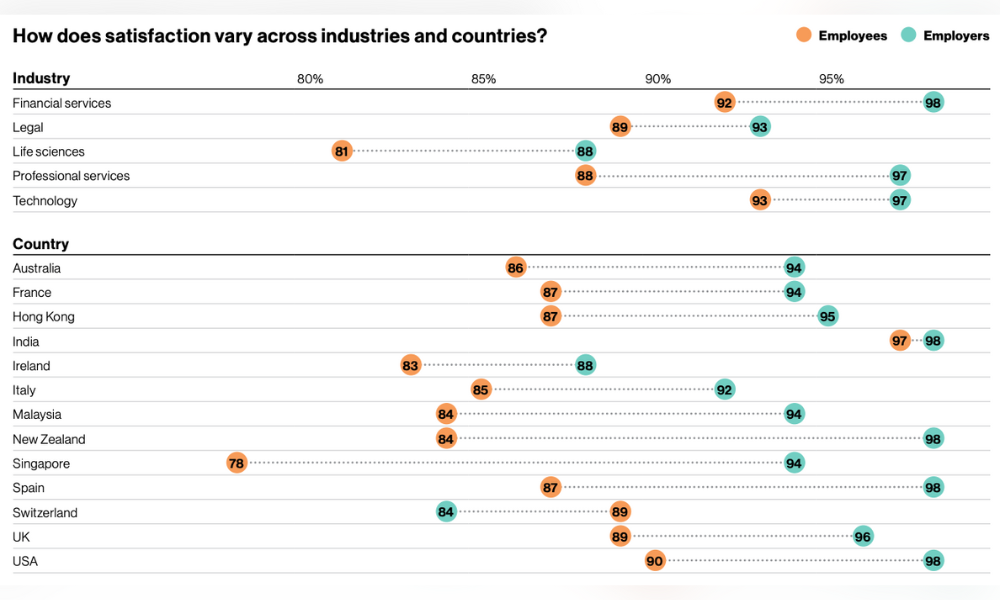
Survey shows top 3 ways to make workers more satisfied with work arrangement

Employees in Singapore are the most dissatisfied with their hybrid work arrangements when compared to their global counterparts, according to a new report.
Unispace polled 8,000 employees and 2,700 employers in 13 countries to determine the current state of workplaces across the world.
It found that while 78% of employees in Singapore are satisfied with their current hybrid working arrangement, it falls short of the global average of 87%.
The country also reported the least number of employees who are happy with their current hybrid working arrangement, according to the report.

Source: Unispace's Global Workplace Insights
The proportion of Singaporean employees who are happy with hybrid work is also much less than the employers there who are satisfied with the work arrangement (94%).
According to the findings, Singaporean employees (30%) are among the "least likely to say they feel a strong sense of camaraderie and belonging among employees in the organisation."
They are also the lowest to believe their workforce enables employees to do their best (64%), while employers there are the lowest to agree that they can easily locate and access spaces that they need to get work done (74%).
According to Unispace's report, the three things that would make employees happier to spend more time in the office include:
Among the things that employees also consider essential in the workplace are:
In the next five years, employees also said they want to see the following elements in their workplaces:
Employees' flexible vision on workspaces for the future was released as employers in Singapore have been ordered to start considering employees' formal requests for flexible work arrangements starting in December.